#Crown Hill Cemetery
Explore tagged Tumblr posts
Text

#film#film photography#analog photography#analog#35mm#35mm film#flicfilm elektra 100#flicfilm#elektra 100#NikonFM10#Cemetery#cemetery photography#graveyard#graveyard photography#headstone#grave#crown hill cemetery#crown hill indianapolis
117 notes
·
View notes
Text




Chapel at Crown Hill Cemetery, Indianapolis, IN
#crown hill cemetery#indianapolis#cemetery#graveyard#gothic#gothic architecture#cemetery photography#graveyard photography#pipe organ#chapel#church#funeral#Catholic#religious#Christian
31 notes
·
View notes
Text
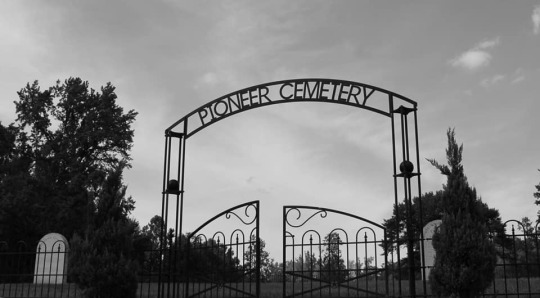

Good Mourning, All that we see or seem is but a cemetery within a cemetery, or whatever Edgar Allan Poe said. Fast growing as the sycamore, Indianapolis developed and stretched its branches outward, replacing small residential areas with industrial parks. Nestled amongst the residential areas were not only homes, but the family burial plots along with them. In an effort to preserve the smaller pioneering cemeteries, lost to time and industrialization. The Greenlawn Cemetery, Rhoads Cemetery, and Wright-Whitesell-Gentry Cemetery were relocated to the Pioneer Cemetery within Crown Hill, each grave dug the same way they were originally by hand. The Greenlawn Cemetery, established in 1821 was the first cemetery known to exist in Indianapolis, originally located near the White River on the southwest end of Kentucky Avenue. In the year of 1912, over 1,160 pioneers originally buried in Greenlawn Cemetery were moved to Crown Hill. This memorial honors these original citizens of Indianapolis including Colonel Aaron C. Johnson, former Sheriff of Fayette Co. Ohio, Veteran of the War of 1812, Sarah A. Baker, Clarence Cooper, Craighead (four unknown), Mary Francis Cunningham, John Given, W.D., Barbara and Sarah Hanch, Nancy F., Julia P., Infant John and George Hollands, David, Martha R., Mary, John, Moses, John, Rebecca A. Margaret, Martha A. and infants Hunter, John W. and Wife, James M. Johnson, Lawson (two unknown), Lewis (one unknown), Benjamin Orr, Eli, Elizabeth and Mary I. Petticord, George Porter, Phillip, Jenny and one unknown Sponable, Iane and Minnie Wallace, Abner S. West and Benjamin Yates. Wright-Whitesell-Gentry Cemetery, established in 1841. Originally a small cemetery located on the Wright family farm in Lawrence Township. In 2008, twelve adults, fourteen children and seven infants were reburied in their final resting place within Crown Hill Cemetery. Members of the Wright family, headed by the Reverend James T. Wright, founder of the church now known as Castleton United Methodist Church, and extended family members of the Whitesell, Gentry, Easterday and Gates families were buried in the small cemetery with the last burial taking place in 1905. Also interred is Civil War Private John W. Gentry, who served in the 26th Indiana, Co. "I" from March of 1864 until it was disbanded in January 1866. Much like the Greenlawn Cemetery and Wright-Whitesell-Gentry Cemetery, the Rhoads Cemetery was a small cemetery established in 1844. In 1999, twelve adults and thirty-four children of the Rhoads, Rude, Foster, Foltz and Johns families were buried at their final resting site within Crown Hill. Among the identified burials are James Rhoads, died - 1844, Hanna Rhoads died - 1849, Sarah Rhoads died 1857, John Rhoads died - 1860, Emma Rude died - 1862, Willian Rude died - 1866 and William Rhoads died - 1906. Monday Mournings are in loving memory of the dearly departed. By exploring their burial sites we can connect to their lives, continuing to honor their memory so they will not be lost to time. Memento Mori. Rest In Peace, Mori 🥀
#The Gravekeeper's Daughter#Monday Mourning#Good Mourning#In loving memory#rest in peace#rip#Cemetery#Graveyard#Gravestone#Memento Mori#Mori#Mournings with Mori#lessons for the living#Dedicated to the departed#history#macabre#Crown Hill Cemetery#historical sites#remembering#a matter of life and death#spooky#dearly departed#burial#tomb#monument#mausoleum#mourning
3 notes
·
View notes
Text
Parallel to All Ghosts

We are all pieces; we all play our parts. We are all in pieces; we all fall apart.
vimeo
This new work has developed directly from my exhibition "Parallel to all truth" in May 2024; most of the elements of this work were separate and individuated in that show, across different but overlapping installations. Here they are all knitted together, joined with a focal element that did not appear in the exhibition. This is the sound of the Gatling gun; i recorded this along with the view of the gravesite at Crown Hill cemetery (Indianapolis) on Memorial Day 2022.
It's taken me a long time to settle on how to work with the sound of the Gatling gun. First, i needed to find my opportunity to record it, and it turned out that the particular space and specific time of that recording really mattered (and is an important part of this new piece).
I had hoped to record this in the very same location on the same holiday in 2021, in anticipation of my time in residency at MASS MoCA that summer. The pandemic cancelled that plan, and subsequently i made work with sound that echoed the gun, but this was still a poor imitation. A year later i had the sound, but i found it was too powerful to use in an "exposed" way; i didn't want to create unnecessary, gratuitous triggers in the work. In this work i want to bring the sound down, to make it more "equal" with other elements so that it doesn't dominate; while still recognizing its specific "gravity", the way it demands attention.
This is a sound that has become all too common, but also still resides in a contested space. Somehow it can be readily acceptable in a place that is normally devoted to peace (and quiet) for the multitudes laid to rest there, due to the holiday. Despite this, it can't be separated from the crisis we are currently in, ongoing and severe.
This work is about finding my way into this space, and working in it.

#video art#contemporary art#sound art#gatling gun#self surveillance#crown hill#cemetery#hambidge center#artist residency#artists on tumblr#ghosts#Vimeo
1 note
·
View note
Text
Akroydon 2 (Akroyd Mill and Burial Ground)
Keen to complete our investigations of Akroydon, we took the bus to Halifax mid-May. We alighted on Crown Street where Phil indicated books piled in a window behind us. Previously unnoticed, it solved the mystery of Old Bank Shops, which I’d fruitlessly sought last year. A subsequent foray found nothing but fusty old books and postcards. From North Parade, signs led to Akroyd Mill. It was, of…

View On WordPress
#advert#Akroyd Mill#Akroyd Park#Akroyd Place#Akroydon#All Saints#All Saints Burial Ground#All Souls Church#alley#architecture#Bankfield#Bankfield Museum#Blast From The Past#Borough Market#bridge#Burdock Way#carpark#cemetery#children#chimney#Crown Street#Dean Clough#drizzle#Edward Akroyd#gallery#games#Haley Hill#Halifax#Hebble Brook#heritage
0 notes
Text
On the road leading into the center of Concord, Massachusetts, there sits a house.
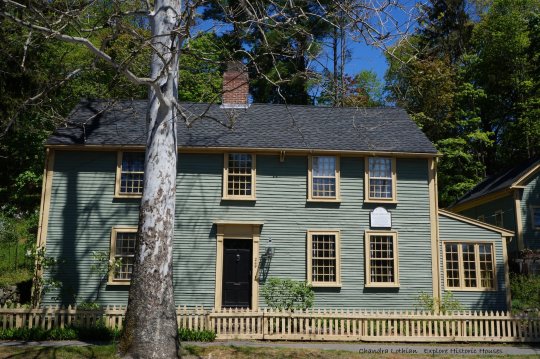
It is a plain, colonial-style house, of which there are many along this road. It has sea green and buff paint, a historical plaque, and one of the most multi-layered stories I have ever encountered to showcase that history is continuous, complicated, and most importantly, fragmentary, unless you know where to look.
So, where to start? The plaque.
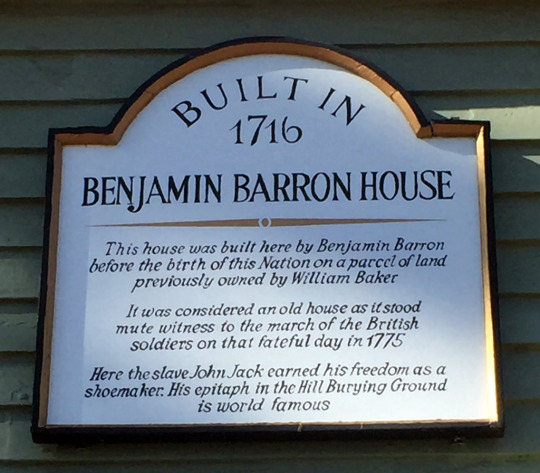
There's some usual information here: Benjamin Barron built the house in 1716, and years later it was a "witness house" to the start of the American Revolution. And then, something unusual: a note about an enslaved man named John Jack whose epitaph is "world famous."
Where is this epitaph? Right around the corner in the town center.
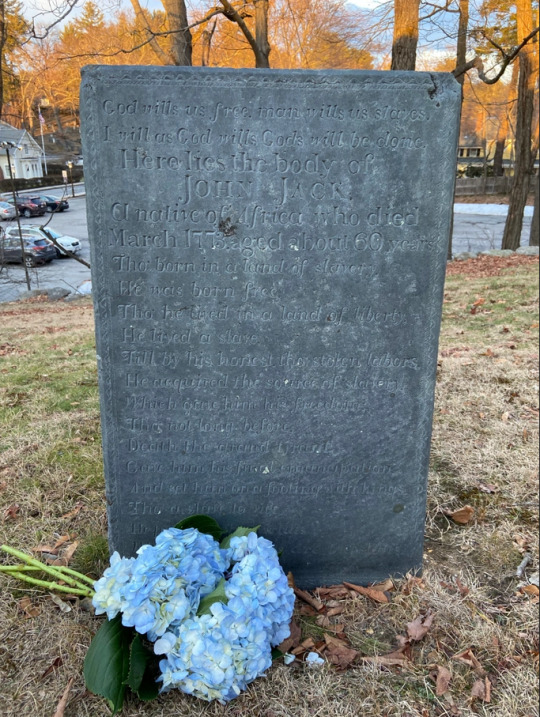
It reads:
God wills us free; man wills us slaves. I will as God wills; God’s will be done. Here lies the body of JOHN JACK a native of Africa who died March 1773 aged about 60 years Tho’ born in a land of slavery, He was born free. Tho’ he lived in a land of liberty, He lived a slave. Till by his honest, tho’ stolen labors, He acquired the source of slavery, Which gave him his freedom; Tho’ not long before Death, the grand tyrant Gave him his final emancipation, And set him on a footing with kings. Tho’ a slave to vice, He practised those virtues Without which kings are but slaves.
We don't know precisely when the man first known only as Jack was purchased by Benjamin Barron. We do know that he, along with an enslaved woman named Violet, were listed in Barron's estate upon his death in 1754. Assuming his gravestone is accurate, at that time Jack would have been about 40 and had apparently learned the shoemaking trade from his enslaver. With his "honest, though stolen labors" he was then able to earn enough money to eventually purchase his freedom from the remaining Barron family and change his name to John, keeping Jack as a last name rather than using his enslaver's.
John Jack died, poor but free, in 1773, just two years before the Revolutionary War started. Presumably as part of setting up his own estate, he became a client of local lawyer Daniel Bliss, brother-in-law to the minister, William Emerson. Bliss and Emerson were in a massive family feud that spilled into the rest of the town, as Bliss was notoriously loyal to the crown, eventually letting British soldiers stay in his home and giving them information about Patriot activities.
Daniel Bliss also had abolitionist leanings. And after hearing John's story, he was angry.
Here was a man who had been kidnapped from his home country, dragged across the ocean, and treated as an animal for decades. Countless others were being brutalized in the same way, in the same town that claimed to love liberty and freedom. Reverend Emerson railed against the British government from the pulpit, and he himself was an enslaver.
It wouldn't do. John Jack deserved so much more. So, when he died, Bliss personally paid for a large gravestone and wrote its epitaph to blast the town's hypocrisy from the top of Burial Hill. When the British soldiers trudged through the cemetery on April 19th, 1775, they were so struck that they wrote the words down and published them in the British newspapers, and that hypocrisy passed around Europe as well. And the stone is still there today.

You know whose stone doesn't survive in the burial ground?
Benjamin Barron's.
Or any of his family that I know of. Which is absolutely astonishing, because this story is about to get even more complicated.
Benjamin Barron was a middle-class shoemaker in a suburb that wouldn't become famous until decades after his death. He lived a simple life only made possible by chattel slavery, and he will never show up in a U.S. history textbook.
But he had a wife, and a family. His widow, Betty Barron, from whom John purchased his freedom, whose name does not appear on her home's plaque or anywhere else in town, does appear either by name or in passing in every single one of those textbooks.
Terrible colonial spelling of all names in their marriage record aside, you may have heard her maiden name before:

Betty Parris was born into a slaveholding family in 1683, in a time when it was fairly common for not only Black, but also Indigenous people to be enslaved. It was also a time of war, religious extremism, and severe paranoia in a pre-scientific frontier. And so it was that at the age of nine, Betty pointed a finger at the Arawak woman enslaved in her Salem home, named Titibe, and accused her of witchcraft.
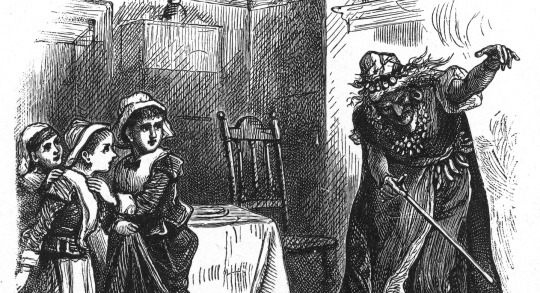
Yes, that Betty Parris.
Her accusations may have started the Salem Witch trials, but unlike her peers, she did not stay in the action for long. As a minor, she was not allowed to testify at court, and as the minister's daughter, she was too high-profile to be allowed near the courtroom circus. Betty's parents sent her to live with relatives during the proceedings, at which point her "bewitchment" was cured, though we're still unsure if she had psychosomatic problems solved by being away from stress, if she stopped because the public stopped listening, or if she stopped because she no longer had adults prompting her.
Following the witch hysteria, the Parrises moved several times as her infamous father struggled to hold down a job and deal with his family's reputation. Eventually they landed in Concord, where Betty met Benjamin and married him at the age of 26, presumably having had no more encounters with Satan in the preceding seventeen years. She lived an undocumented life and died, obscure and forgotten, in 1760, just five years before the Stamp Act crisis plunged America into a revolution, a living bridge between the old world and the new.
I often wonder how much Betty's story followed her throughout her life. People must have talked. Did they whisper in the town square, "Do you know what she did when she was a girl?" Did John Jack hear the stories of how she had previously treated the enslaved people in her life? Did that hasten his desperation to get out? And what of Daniel Bliss; did he know this history as well, seeing the double indignity of it all? Did he stop and think about how much in the world had changed in less than a century since his neighbor was born?
We'll never know.
All that's left is a gravestone, and a house with an insufficient plaque.
7K notes
·
View notes
Text
Do No Harm
CHAPTER FIFTEEN: (Not) A Greater Woman
Masterlist | Series Masterlist
Pairing: Matt Murdock x F!Reader
Summary: Your tendency to self-destruct tears down everything in your path, even your best friend. Though it is Claire's secrets, in the end, that have you fearing for your life.
Warnings for this chapter: ANGST, Heavy on the angst (18+), alcohol abuse (and everything that comes with it), mentions of alcoholism, mentions of child and domestic abuse, mentions of suicide, bad coping mechanisms, Reader is being unfair, needles, mentions of drugs, self-destructive behavior, violence, faint allusions to sexual assault
Word Count: 3.4k
A/n: ...and ending on a cliffhanger. Classic. I purposefully wanted a lot of raw dialogue. I wanted Liv to say things she doesn't mean because she has problems and she needs help. I wanted Claire to be on her last straw because mental illness is hard on everyone involved, just to different degrees. Mental illness does funny things to people, after all. Please, heed the warnings.
Read Chapter 15: (Not) A Greater Woman here on AO3!
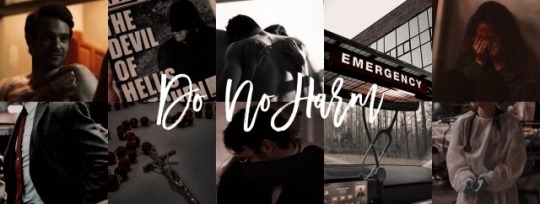
In your dream, far beyond the never-ending void of darkness, there is a little girl. She’s running around a field of bright white daisies, carefully picking those she deems pretty enough to be made into a flower crown. The sun is shining down from above, and it’s so peaceful there, far away from the bustling of the city.
A woman calls from somewhere north. The little girl turns toward the distinctive sound, waving her daisy-filled hands. “Daisies, mommy!” she says, unstable on her little toddler legs.
The woman chuckles. “I can see that, darling. You want to come over here for a second? I have to reapply your sunscreen.”
Such a beautiful summer day, you think to yourself as you feel the breeze against your skin. The little girl doesn’t protest. She takes the daisies and runs up the hill to her mother.
They are the spitting image of each other—matching braids, matching overalls, and matching smiles. At what point in life does the candle blow out, and children who once believed in all the good in the world turn into cynical adults? At what point in life does the magic end?
When the woman calls out this time, the name she utters sends a shiver down your spine. You look around yourself, but there is no one but you, the little girl, and her mother, and neither of them seems aware of your presence in the vast field of daisies.
The realization slowly dawns on you that the girl with stars in her eyes isn’t just any little girl finding solace in nature, she is you.
Within seconds, the daisies turn to dust. You look down, expecting to see a sliver of green, but you find yourself standing in a pile of ashes instead. First, it is ashes, then it is grass again, and then, you’re standing before a marble gravestone in a crowded cemetery in the suburbs of San Francisco.
That is why you hate summers; one second, you’re happy, and the next, the person you love most is ripped from your bare hands.
When you think about your mother, you only remember the good days. Though somewhere in the faint distance of your mind, tucked away in a neat box that you once locked and threw away the key, are pictures of her crying. Pictures of her lying in bed for days as your father tried to coax her to at least eat something.
You remember the times she used to yell at him, completely apathetic, and you had to watch from your doorway down the hall as she bullied him away. You doubt he ever noticed you there. In reality, your mother had more bad days than good. The tumor was growing uncontrollably inside of her, but every time he took her to the doctor, they sent her home with another psychiatric diagnosis.
You were only a child, a toddler, you didn’t know any better. You only wanted your mother. But you lost her, and shortly after, you lost your father to the impossible power of drugs and alcohol.
You swore yourself you would never turn into him. After years of taking care of him, you swore to yourself you would never touch a bottle of liquor. You would never make the same mistakes he did.
Until one day, you did.
No matter what you do, you might never outrun the cycle of self-destruction you were born into.
Your eyes flutter against the iron curtain keeping them shut. You’re trying to fight your way out of this godforsaken nightmare, but someone seems to be holding a sledgehammer to your head. Thud, thud, thud. It’s hollow, at first, then quickly turns sharper.
“Liv,” a faint voice breaks through the cotton in your ears. “Liv, hey! Can you hear me?” she asks.
The world is too bright when you finally open your eyes. With the pounding headaches comes a wave of toe-curling nausea, and before you know it, you’re hunched over the edge of Claire’s couch, reality crashing into you like a tidal wave, and you’re motioning for something, anything, to empty your guts into.
Just in time, she puts a bowl in your hand. A mix of alcohol and pure stomach acid burns its way through your esophagus, traveling from your stomach out through your mouth.
If only the memories were erased, the physical pain would be much easier to bear. You can still see them, clear as day in your mind. Matt, the empty restaurant table, and the bottle of vodka you drowned in—it’s all coming back to you now. One would think that drinking yourself into oblivion would work like a wet towel on a dirty whiteboard, but the brain can be powerful in upholding the clarity of painful memories. Once again, you have fallen victim to your psyche. You destroyed your body again, and again, it was for nothing at all.
“Easy.” Claire wraps a hand around your hair. “You’re gonna rip out your IV.”
You catch a glimpse of the tube sticking out of your arm, attached to the bag of yellow propped up on the backrest.
“What?” you pant.
It doesn’t make sense to you. None of this makes sense. She is coddling you like one of her patients. After what you did, you hardly deserve it. The things you said to her seem so cruel now in retrospect, but you were drunk and angry, and you didn’t know how to listen. You didn’t want to listen. So, you picked a fight because that is what you do best—pushing the people you love away.
“It’s a banana bag,” Claire states. “Don’t ask.”
“Well, I am asking.”
“Perks of a nurse’s apartment. Free drugs.”
“Criminal,” you mutter.
“Anger issues,” she retorts. “Somebody’s gotta make sure your ass doesn’t die from alcohol poisoning, so…”
Nerves do funny things to people. Some start pacing, others try to breathe, and Claire hovers. It is her job to do so. To be there. To take care of others. And she is the first to try and save something that seems beyond repair. To her, nothing ever really is.
She reaches for her medical bag. “Here,” she says, handing you a wrapped aspirin. “This should help with the hangover.”
You ignore her. “What time is it?”
“Little after five.”
“In the morning?”
“In the evening. You were out for over twelve hours.”
“Fuck!” You try to sit up without ripping the needle out of your arm, but even the slightest movement turns your stomach around.
The next curse comes with a gush of stomach acid. Your muscles contract, and you empty your guts into the bowl.
Claire growls, “Stop moving.”
“No. I need to–” You retch. “Uh, I need to be at work in a few hours. I need to… go home.”
You convince yourself that if you breathe through your nose, you won’t vomit. You won’t pass out. The pain won’t consume you whole. You reach for the aspirin, after all, to at least try to numb what you destroyed.
“You still have alcohol in your blood.” She stops you. “You can’t operate like this.”
You push the bowl aside. “I have patients, Claire,” you say. “I need to check on them. If I don’t, I’ll get fired. People could die.”
“Are you really that irresponsible?”
“I’m not drunk anymore.”
“Oh, yeah?” She reaches for the breathalyzer, wherever she got that from. “Blow into this,” she says, “and we’ll talk.”
You grind your teeth. Your eyes flicker between the device and her face. She looks smug—so fucking smug. You push it away from your mouth; you’re going to fail, anyway. Setting foot in the hospital would be gross medical negligence, and you refuse to be that person.
Claire nods. “Thank you. You’re gonna call in sick to work, and I will make sure you’re sober enough by tomorrow for your next shift.”
“Is that all you’re gonna do?” you counter.
A pause, and then, “I’ll come back when the time’s right,” she says.
You want to ask, what if the time is never right? But the tension wraps around your neck like a noose, and you find yourself suddenly unable to talk.
Life as you know it is over, you have to face that. Things will never be the same again. Claire might never be the same again. As much as it hurts, the cycle of life always finds ways to fuck you over, and you just have to accept that.
You watch as Claire busies her hands, as she keeps hovering, and the words she said last night before you passed out come back to mind. Do you want to turn into your father? You could get nauseous again just thinking about it. “What you said last night,” you begin, “about me turning into my father…”
She stops rearranging the furniture, but she doesn’t turn around to you. “You want me to say I didn’t mean it?” she asks.
“I want you to tell me the truth,” you say.
“The truth?”
“Yeah.” You sit up straighter, holding onto the needle in your arm. “Do you really think I’m like him?” A grunt slips past your lips. “I mean, is that how low you think of me?”
Claire scoffs. Her eyes slip from you to her hands in her lap. “I asked if you wanted to turn into him, I didn’t say you already were. ‘Cause even if that’s not the case, you’re on the best path to doing so anyway.”
“What’s that supposed to mean?”
“Seriously?” She gets up, towering over you, and you have no choice but to let her; you don’t have the energy to fight back. “All the drinking, picking fights, and feeling sorry for yourself? That’s not an indication?”
“I have bad coping mechanisms, yes, but that doesn’t mean–” but you get interrupted.
“Bad coping mechanisms,” Claire snickers. “Right.”
“I’m not like him and you know it,” you say. “You know I’d rather die than be like him.”
“If you keep going like this, you will die.”
Your eyes roll back into your head. “I had a few drinks. I didn’t snort a line of coke and started beating the person I was supposed to protect senseless. You know why?” You raise your voice high enough for it to crack. “‘Cause I’m not like my father!”
The sound travels back to your ears, and you flinch at the shrillness of it all. You swore years ago that, no matter how miserable you get, you would never let the pain get the better of you. You’re still functioning. You are not like your father because you’re still functioning. Or are you, after all, just lying to yourself?
Your life has been a burning trash pile for so long that you forgot what normal even is, but maybe you are the reason it hasn’t stopped burning yet. Maybe it isn’t the trauma or the fact that Matt stood you up but you are the one pouring gasoline into the fire.
You’re not functioning, but you can’t possibly admit it.
“You’re using alcohol to escape,” Claire says. “You know who does that? Alcoholics. You’re an alcoholic.”
“I am not an alcoholic!” you snap.
Your mind is a continuous loop of, take it back, take it back, take it back. You just want her to take it back.
Instead, she throws her arms up in the air. “My point is that you can’t keep going like this. You can’t drink yourself into a coma at every minor inconvenience. You’re gonna end up dead in a ditch one day, and I won’t be there to bail you out.”
You manage to pull yourself together enough to rise from the couch. “I don’t need you to bail me out! I don’t need you to do anything,” you tell her, so sure of yourself.
“You’re my best friend, for fuck’s sake! I’m here. I’ll always be here,” she says, “but I can’t help you if you keep destroying yourself just because you think nothing fucking matters anymore!”
“I’m not some broken thing you need to fix, Claire! It is my life! Mine!”
“You know what? You’re right. Maybe I shouldn’t stop you from killing yourself.”
You shake your head. “I managed to survive before I met you, and I can do it again.”
You try to tell yourself that she isn’t the reason you’re still alive. You try to tell yourself that she is just another person in your life and that you will survive if you lose her. Life would be easier if she wasn’t who she is.
Upon your words, Claire doesn’t move a muscle. “Okay,” she says. “Fine.”
Infuriating.
“God, I wish I’d never met you!”
In the fallout of your outburst, there is quiet. The words seep into her skin like radioactive material. You watch as it poisons her, as it poisons every good memory you made together over the past two years as though it never meant a thing.
You can’t believe you said that.
“Well,” Claire finds her voice again after seconds stretched into hours, “that makes two of us. But you know what? I won’t stand in your way. I’m done.”
The words die on your tongue.
“I’m gonna take a walk, and when I come back,” she says, “I want you gone.”
“Claire–” you start.
You have never seen her so distant, so beside herself. She reaches for her coat on the rack. “You know how to remove an IV, don’t you?”
“You think that’s gonna hurt me?” you try to engage her one last time, waiting for a reaction, anything to tell you that she isn’t going to walk out on you.
That she isn’t about to abandon you.
That you didn’t just ruin the one good thing in your life by not knowing how to keep your mouth shut.
Because you were so angry at yourself you took it out on her like a fucking sociopath.
“No,” Claire chuckles, breathless to no end, “you don’t need me for that. You never did.”
The door falls shut behind her.
For a moment, you think it’s a bad joke and that she will turn around and come back, but one minute turns to two, and the door remains closed. You are left alone in a strange apartment with a strange cat, trapped in a grave you dug for yourself.
A greater woman would run after her. A greater woman would apologize and beg her to come back. A greater woman would not be a coward when faced with the reality of having pushed her best friend away—because she has no one else. You have no one else. But you’re not a greater woman. You claim to be; you want to be, but you are far too screwed up for that.
You press a finger just above the needle, slowly pulling it out of your arm. The sting is unlike the thousand cuts every one of your breaths is marinating with salt. An inferno has taken over your body, but you have no more fight left in you.
You are done.
You ignore the blood spurting from the superficial wound, reaching for your coat instead. Your steps are far from straight, your vision is blurry and you don’t have any money, but you would be damned if you stayed.
Just as you’re about to drag your sorry ass to the exit, the door rattles. It’s subtle, but it’s there, followed by the relentless drag of steel boots along the hallway outside.
The uncoordinated turning of the knob stops you in your tracks.
Claire has a key.
The woman who lives here has a key, and she is still with her ill brother.
You are either having hallucinations, finally losing your mind or someone is trying to get into the apartment—and it isn’t Claire.
You back away, step after step toward the window. As if you could survive a jump from this height. As if you have the guts to jump.
That rattling is so familiar—too familiar.
Someone kicks at the fragile wood, and your heart drops to your stomach, dissolving in the acid. Voices start to overlap in a language you don’t understand. You have nowhere to run.
The irony of it all almost makes you laugh. You pushed Claire out of the apartment she’s staying in; you pushed her out of your life, and now someone is trying to break in with you inside. It seems like karma of the highest order.
Your mouth opens in a gasp as the door flies off its hinges, and you come face to face with two men. Strangers covered in scars.
You don’t scream.
You don’t run.
They certainly expect a reaction out of you, shouting orders in Russian to each other to surround you, but you are tethered to the ground by the roots of an invisible tree. Your blood runs cold, clogging the arteries leading to your heart, but you still can’t run.
Pointless is the only word that comes to mind. Fighting back is pointless. You want to curl up and die. To let natural selection take its pick. You can’t say you don’t deserve it because that would be the biggest lie of all.
Their grabby hands reach for you. “Take it,” John’s voice pipes up in the back of your head. “Take. It!” And if it were him, you would run.
God knows what they want to do to you. They have the same evil in their eyes as he had. A million worst-case scenarios cross your mind, all worse than the mercy of death, and your muscles thaw. A switch is flicked. You break out of the ice, sprinting around the coffee table to get toward the door just when they think they can get to you. Russian obscenities fall from their lips, and you swear you can make out the name, “Claire,” along the lines.
They will not get her, and if they get you, at least they won’t have her.
You should have listened when she said there are some things she just can’t tell you. You had no right to be mad. What has she gotten herself into? What has she been suffering through without you?
She always had to bail you out. Even when you thought she chose herself, she was still choosing to protect you. What a fucking fool you are.
You catch the eyes of a boy, a teenager, on your way to freedom, the two men shouting behind you, and his broken brown eyes break your heart like a porcelain vase. He looks so guilty, so shocked to see you there, and it only takes you a moment to recognize him.
He’s bleeding.
“Not Claire,” he chokes out in his broken Spanish accent, even after you shake your head and scream for him to run, but it’s too late.
They don’t care that you’re not her. They grab you, and you scream again as they tear you to the ground. You barely feel the blood pooling under your nails, dragging along the splintering floorboards. Adrenaline forces your body to fight back, to kick, and to cry out for help, but like all those years ago, no one hears you.
One of the men grabs your hair and forces your head into the wood. Your temple splits open under the sheer force, blood splattering everywhere. For a moment, you only hear your heart racing in your ears. You can taste it on your tongue. The lights blind you, and they are whiter than they used to be.
You’re painfully aware of the hands dragging your limp body toward the door. T copper and dirt in your nostrils are a toxic combination of scents that remind you of death, and you might just die tonight. Physically and emotionally, you might die.
You’ve been begging for death to come and get you, but now that he is knocking on your door, you don’t want him anymore. Not like this. Not after everything you survived to get here. This is not how you want to go out.
“Help,” your lips form the word as an incoherent whisper. “Help, please…”
It’s too late. Consciousness slips through your fingers, and darkness overcomes you like a total solar eclipse. Though unlike before, you are not floating. You are not at peace. There are no daisy fields or graveyards.
This new darkness is empty, vile, and eerily familiar, too. When you finally succumb to it, thoughtless existence is all that is waiting for you on the other side—or perhaps, purgatory.

Tag List: @shiorimakibawrites @allllium @siampie @auroraslibrary @roseallisonparker @abucketofweird @capylore @kniselle @sumo-b98 @peachstarliight @thatonegamefish @danzer8705 @kakamixo @littlehappyperson @atemydadforbreakfast @stevenknightmarc @zheezs14 @shouldbestudying41 @kiwwia-wiwwia @writtenbyred @echo-ethe @kezibear @peterbarnes @littleagxs @silas-aeiou @scoliobean
#matt murdock#matt murdock x reader#matt murdock x fem!reader#daredevil#daredevil x reader#matt murdock angst#do no harm#charlie cox
50 notes
·
View notes
Text
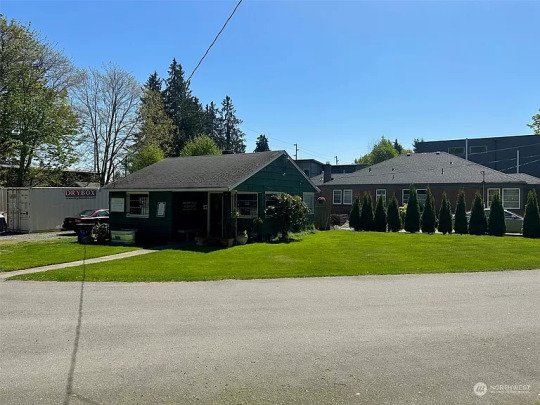
Finally, for the all the goths who've always wanted to live in a cemetery, now there's a chance to actually own one. Look at how nice the office is- I live near an old cemetery that, right inside the gates, has a lovely Dutch Colonial caretakers house. My grandparents are buried there.

That office can certainly be turned into a cute little cottage. The current owners are on the verge of losing the 9.84 acre Crown Hill Cemetery located in Seattle, Washington, and the court has ordered them to sell it. Surely, there must be enough business in a place as big as Seattle, but the description notes that the owners have never made any improvements to the property. Price- $1.495M.
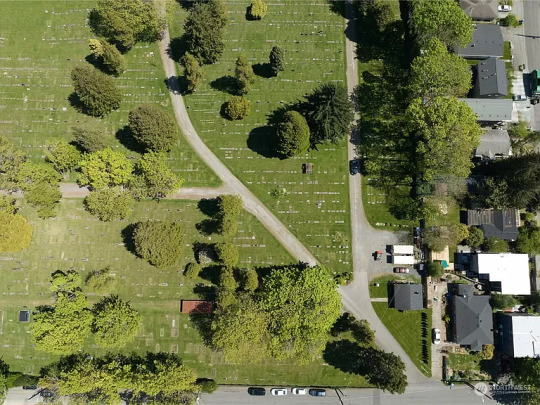
It's already nice, and a new owner could make it even better. According to the description, it has room to increase revenue by adding Mausoleum and/or Columbarium (niches for cremated remains) buildings or structures on the vacant lots in the SW corner by adding them on under-utilized roads throughout the grounds.

Clearly the current owners were remiss and didn't keep up with the times. They didn't offer any modern options.

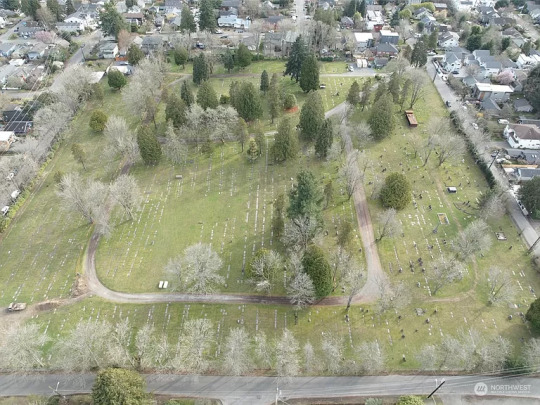
It has a lot of nice trees. I would put a beautiful iron fence around it, with columns and a big entrance gate. Maybe with a couple of tasteful gargoyles.
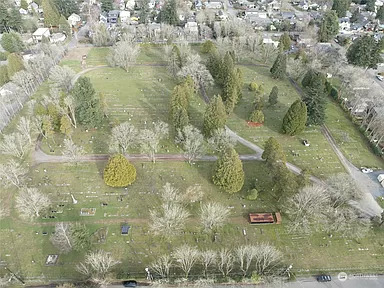

The smaller structure here looks like an outdoor altar, but I have no idea what the bigger one is.
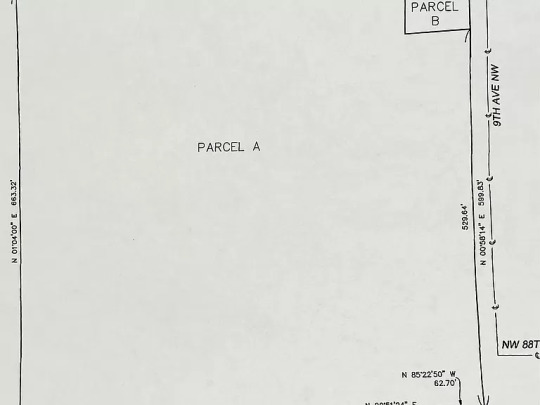
Anyway, it's up for grabs.
57 notes
·
View notes
Text

One of the most creative mausoleum designs I've seen so far, at Crown Hill Cemetery, Indianapolis
Do not taunt the lion. It is not messing around.
13 notes
·
View notes
Text
James Baskett

James Franklin Baskett (February 16, 1904 – July 9, 1948) was an American actor who portrayed Uncle Remus, singing the song "Zip-a-Dee-Doo-Dah" in the 1946 Disney feature film Song of the South.
Baskett studied pharmacology as a young man but gave it up to pursue an acting career. He first moved to New York City, New York, where he joined up with Bill 'Mr. Bojangles' Robinson. Using the name Jimmie Baskette, he appeared with Louis Armstrong on Broadway in the 1929 black musical revue Hot Chocolates and in several all-black New York films, including Harlem is Heaven (1932).
He later moved to Los Angeles, California, and had a supporting role in the film Straight to Heaven (1939), starring Nina Mae McKinney. In 1941 he voiced Fats Crow in the animated Disney film Dumbo, and he also had bit parts in several B movies, including that of Lazarus in Revenge of the Zombies (1943), a porter in The Heavenly Body (1944), and native tribal leader Orbon in Jungle Queen (1945). From 1944 until 1948, he was part of the cast of the Amos 'n' Andy Show live radio program as lawyer Gabby Gibson.
In 1945, he auditioned for a bit part voicing one of the animals in the new Disney feature film Song of the South (1946), based on the Uncle Remus stories by Joel Chandler Harris. Walt Disney was impressed with Baskett's talent and hired him on the spot for the lead role of Uncle Remus. Baskett was also given the voice role of Brer Fox, one of the film's animated antagonists, and also filled in as the main animated protagonist, Brer Rabbit, in one sequence. This was one of the first Hollywood portrayals of a black actor as a non-comic character in a leading role in a film meant for general audiences.
Baskett was prohibited from attending the film's premiere in Atlanta, Georgia, because Atlanta was racially segregated by law.
Although Baskett was occasionally criticized for accepting such a "demeaning" role (most of his acting credits were that of African-American stereotypes), his acting was almost universally praised, and columnist Hedda Hopper, along with Walt Disney, was one of the many journalists and personalities who declared that he should receive an Academy Award for his work. Baskett defended the film and his character in it, saying, "I believe that certain groups are doing my race more harm in seeking to create dissension, than can ever possibly come out of the Song of the South."
On March 20, 1948, Baskett received an Academy Honorary Award for his performance as Uncle Remus. He was the first African-American male actor to earn an Academy Award. Additionally, Baskett was the last adult actor to receive an Honorary Oscar for a single performance.
Baskett had been in poor health during the filming of Song of the South due to diabetes and he suffered a heart attack in December 1946 shortly after its release. His health continued to decline, and he was often unable to attend the Amos 'n' Andy radio show he was on, missing almost half of the 1947–1948 season. On July 9, 1948, during the show's summer hiatus, James Baskett died at his home of heart failure resulting from diabetes at age 44. He was survived by his wife Margaret and his mother Elizabeth. He is buried at Crown Hill Cemetery in Indianapolis.
16 notes
·
View notes
Text
Vice Presidential Profiles: Thomas Riley Marshall (VP #28)
THOMAS RILEY MARSHALL 28th Vice President of the United States (1913-1921)
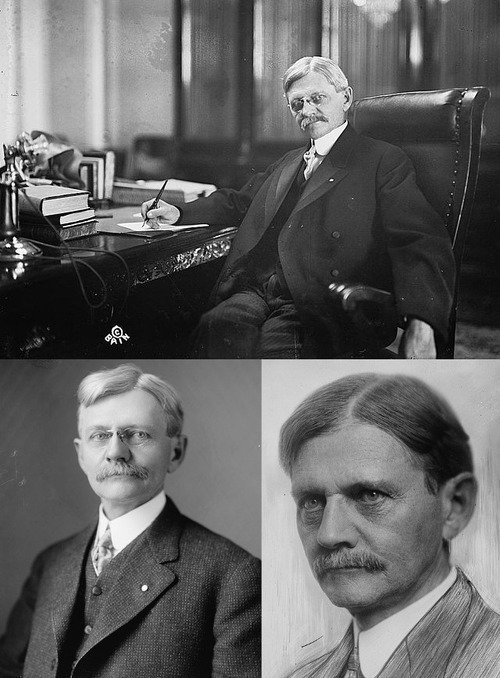
Full Name: Thomas Riley Marshall Born: March 14, 1854, North Manchester, Wabash County, Indiana Religion: Presbyterian College: Wabash College, Crawfordsville, Indiana Career Before the Vice Presidency: Lawyer, Columbia City, Indiana (1875-1909); Unsuccessful Democratic candidate for Prosecuting Attorney of Whitley County, Indiana (1880); 27th Governor of Indiana (January 11, 1909-January 13, 1913) Political Party as Vice President: Democratic State Represented as Vice President: Indiana Term as Vice President: March 4, 1913-March 4, 1921 Length of Vice Presidency: 8 years, 0 days Age at Inauguration: 58 years, 355 days Served: President Wilson (1st term and 2nd term)/32nd Administration (1913-1917) and 33rd Administration (1917-1921)/63rd Congress (1913-1915), 64th Congress (1915-1917), 65th Congress (1917-1919), and 66th Congress (1919-1921) Post-Vice Presidential Career: Lawyer, Indianapolis, Indiana (1921-1925); Author (1921-1925); Appointed by President Harding to serve as a member of the Lincoln Memorial Commission (1921), Appointed by President Harding to serve as a member of the Federal Coal Commission (1922-1923) Died: June 1, 1925, Washington, D.C. Age at Death: 71 years, 79 days Cause of Death: Heart attack Buried: Crown Hill Cemetery, Indianapolis, Indiana
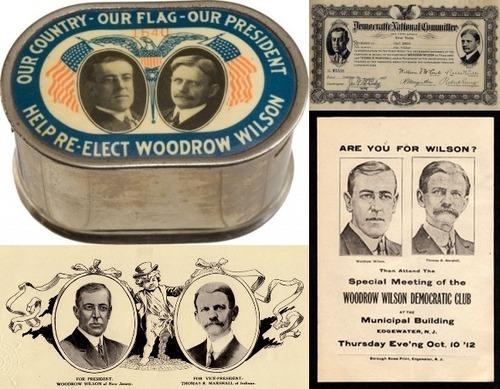
Random Facts About Vice President Marshall: •On August 27, 1858, 4-year-old Thomas Riley Marshall accompanied his father, Daniel, to Freeport, Illinois, where Abraham Lincoln and Stephen A. Douglas were engaging in the second of seven debates which would go down in history as the epic "Lincoln-Douglas Debates". Little "Tommy" was too young to understand what was going on, but he had the best seat in the house. When Lincoln spoke, Tommy Marshall sat on the lap of Senator Douglas. When Douglas spoke, Marshall sat on the lap of Abraham Lincoln. •While Marshall attended college, he wrote an article for the school newspaper about a visiting female speaker who gave a lecture on campus at Wabash College in Crawfordsville, Indiana. The woman felt Marshall had crossed the line and sued the future Vice President for libel in 1872. Each side lawyered up with notable legal representation. The plaintiff hired Lew Wallace, who was a Union General during the Civil War, later became Governor of the New Mexico Territory, and is best-known today as the author of Ben-Hur. Marshall found himself a lawyer in Indianapolis that was also a former Union General during the Civil War and who would later surpass even Wallace's political accomplishments. Marshall's lawyer was able to make it clear to the plaintiff that Marshall's comments might have been in poor taste, but they were likely true, and the case was dropped. Marshall's attorney was future President Benjamin Harrison. •After beginning his own law career, Marshall fell in love with a young woman named Kate Hooper, but she died shortly after they were engaged to be married. Marshall was devastated by her death and began drinking heavily. Alcoholism took a toll on Marshall's health, career, and reputation until he finally married Lois Kimsey in 1895. Lois helped Marshall quit drinking, which gave him the focus to begin his political career. He didn't win his first political election until he was 54 years old.
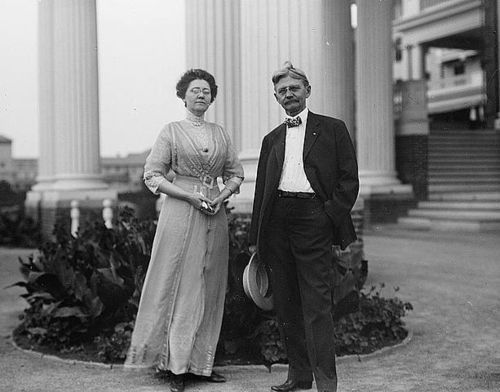
•In 1909, Marshall -- as Governor of Indiana -- installed the final brick to complete the Indianapolis Motor Speedway, the site of the Indianapolis 500. •Marshall was not Woodrow Wilson's first choice as his Vice President in 1912. In fact, Marshall wasn't Wilson's choice as a running mate at all. Wilson had wanted the Speaker of the House of Representatives, Oscar Underwood of Alabama, to join him on the ticket, but Underwood declined the offer. The delegates of the Democratic National Convention decided upon Marshall, and Wilson was not pleased with the choice. He thought Marshall was a "small-calibre man". •Despite his original doubts, Wilson stuck with Marshall in 1916 when many of the President's closest aides suggested dumping the VP in favor of another running mate. With their victory that year, Marshall became the first Vice President since John C. Calhoun in 1828 to be re-elected to another term. •Thomas Riley Marshall is largely remembered because of his many humorous quotes poking fun at the insignificance of the Vice Presidency. When he was nominated as VP, Marshall pointed out that it made sense since he was a native of Indiana, "the mother of Vice Presidents, the home of more second-class men than any other state." A favorite Marshall story was one about a man who had two sons: "One went away to sea...the other was elected Vice President...he never heard from either one afterward." •Other popular Marshall quotes: -"I don't want to work [after retiring], but I wouldn't mind being Vice President again." -"If you look on me as a wild animal, be kind enough to throw peanuts at me." (To a group touring the Capitol) -"What this country needs is a good five-cent cigar." •Despite Marshall's humor and frivolity, there was a serious Constitutional crisis near the end of Woodrow Wilson's Presidency. Wilson suffered a massive stroke in 1919 that virtually incapacitated him and kept him from fully discharging the duties of his office. For the last 18 months of of Wilson's Presidency, Wilson's wife and a handful of close aides carefully managed the Administration, keeping the truth about Wilson's health hidden. Today, a President in Wilson's condition would almost certainly need to hand the office over to the officer next in the line of succession, either temporarily or permanently. But the 25th Amendment did not exist during Wilson's time, and a group of Wilson confidants conspired to keep the truth from the rest of Wilson's Administration, including Vice President Marshall. Marshall didn't push to find out the extent of Wilson's illness; if he had, Wilson likely would have been forced to resign and Marshall would have become President. Most of the people close to President Wilson believed it would be disastrous to pass the reigns of government on to Vice President Marshall. But considering the track record of the Wilson Administration at the end of his Presidency, many historians believe that "President Marshall" could have helped get the Treaty of Versailles ratified and shepherd the United States into joining the League of Nations.
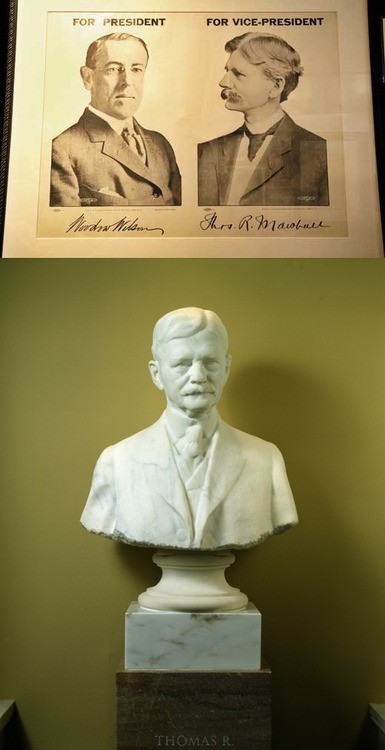
#History#Vice Presidential Profiles#Vice Presidents#Vice Presidency#Veeps#VP#VPOTUS#Vice Presidential History#Thomas Riley Marshall#Vice President Marshall#Thomas R. Marshall#Woodrow Wilson#President Wilson#Wilson Administration#Presidential History#Politics#Political History
7 notes
·
View notes
Text

#film#film photography#analog photography#analog#35mm#35mm film#flicfilm elektra 100#flicfilm#elektra 100#NikonFM10#Cemetery#cemetery photography#graveyard#graveyard photography#headstone#grave#crown hill cemetery#crown hill indianapolis
96 notes
·
View notes
Text
Rosehill Mausoleum, Chicago
The mausoleum features a rotunda with relief panels of the four seasons by Leon Hermant, sculptor

Rosehill Masoleum. Source: Rosehill Cemetery, Dignity Memorial
Background:
Rosehill Cemetery, in northwest Chicago, is the city's largest and oldest cemetery, dating back to 1859, and contains at least 200,000 grave sites in a 350-acre garden setting.
Dedicated in 1914, the cemetery's Rosehill Mausoleum was designed by architect Sidney Lovell, who is interred within. The interior is almost entirely of marble, with the floors composed of Italian Carrara marble. Several later additions would be made to the building; there were six additions made after 1913, and a final one in 1975.
Leon Hermant (1866–1936) was an American sculptor best known for his architectural sculpture. Hermant was born in France, educated in Europe and came to America in 1904 to work on the French Pavilion at the Louisiana Purchase Exposition in St. Louis, Missouri.
For most of his career he was based in Chicago, working mostly in the American midwest, and frequently with a partner Carl Beil.
From 1904, when they met in St. Louis, until 1927, Hermant and Beil were partners at their Sculpture Studio at 21 East Pearson Street in Chicago. Leon was the Artist, Carl, the "Executioner." Hermant continued his art after Beil's death in 1927, receiving a major commission for the Indiana State Library in 1934. Hermant exhibited at the Art Institute of Chicago in the 1920s, and would complete many sculptures throughout the U.S. [Chicago Sculpture in the Loop]
In 1928 Hermant was awarded the Légion d'honneur by the French government for his Louis Pasteur Monument in Grant Park, Chicago.

Pasteur Monument, Grant Park, Chicago
In the 1929 Fourth Addition to Rosehill Mausoleum, a marble rotunda features relief panels of the four seasons executed by Hermant, placed between engaged marble columns. Each panel contains a brief quote below, appropriate to the season. Leon Hermant's signature appears on the bottom right of only one panel, Winter.
The yellowish lighting within the rotunda is so dim that photography is difficult, and one strains to appreciate the quality of the sculptures. I'd admired these panels before, but it was thanks to some thorough research by Jim Craig of Under Every Tombstone that I was alerted to their sculptor's identity.

Leon Hermant, 1866-1936 Source: Under Every Tombstone

Construction News, February 22, 1913, pp. 6-7. Click to view larger

See detail of ad below:


Photos from my recent visit to Rosehill Mausoleum, July 19, 2024:

Rosehill Mausoleum, corridor leading to the rotunda

Rotunda east side, Winter (left), Spring (right)

Rotunda west side, Summer (left), Autumn (right)

The south of the rotunda is occupied by the elegant Rawson family crypt. The north opens to a corridor leading to other areas of the mausoleum.
The Four Seasons

Spring

Summer

Autumn

Winter
Inscriptions at the base of the four panels:

SPRING
Hail bounteous May, that dost inspire
Mirth, and youth and warm desire
Hill and dale dost boast thy blessing
This we salute thee with our early song
and welcome and wishe thee long.
Milton.

SUMMER
But thy eternal summer shall not fade,
…So long as men can breathe, or eyes can see,
So long lives this, and this gives life to thee.
Shakespeare

AUTUMN
There is no death! The stars go down
To rise upon some other shore.
And bright in heaven's jeweled crown
They shine for evermore.
…For all the universe is life…
There are no dead."
Maeterlink

WINTER
When once our heavenly souls shall climb
Then all earthly grossness quit.
Attired with stars we shall forever sit
Triumphing over death and change and thee
O time!
-Milton-

Detail of Autumn

Signature of Leon Hermant Sc. [sculptor] on the Winter panel

A sculpture inside a family crypt [not attributed to Hermant, but I liked it]

Plan of main level of Rosehill Mausoleum; yellow circle indicates location of the four seasons rotunda.

Beil and Hermant created the relief sculptures above the mausoleum's main entrance (see below).

The mansions of the silent, by Booth, A.L. Published in: Fine arts journal, 1916.
Leon Hermant's other works in Chicago include:
Former Illinois Athletic Club, now SAIC MacLean Center; 12th floor frieze (1908); Zeus presiding over athletic contests.
William Shakespeare, (1915) Northwestern University, Evanston, Illinois
Louis Pasteur Monument, (1928) Grant Park, Chicago
City Hall and Cook County Building, (1911), Chicago
Radisson Chicago Hotel [Medinah Athletic Club] Reliefs, (1929), Chicago; According to an article in the Chicago Tribune from Sept 16, 1928 entitled “Building art inspires panels,” “The friezes were designed by George Unger, in collaboration with Walter Ahlschlager, and carved by Leon Hermant."
One North Lasalle Street (1930), Vitzthum and Burns architects, Chicago
via Prabook site
SOURCES/ LINKS:
Léon Hermant, Wikipedia
Sidney Lovell, Wikipedia
"The Mansions of the Silent," by Anne Lisle Booth, Fine Arts Journal, Vol. 34, No. 6 (Jun. - Jul., 1916), pp. 265-274
"Rosehill Cemetery Mausoleum," Construction News, February 22, 1913, pp. 6-7.
#Rosehill#mausoleum#cemetery#chicago#architecture#sculpture#Hermant#Leon Hermant#four seasons#seasons#rotunda
6 notes
·
View notes
Text






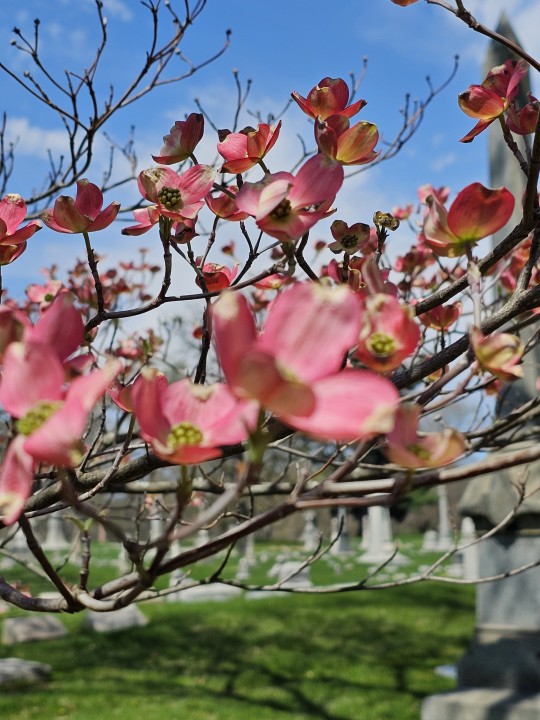
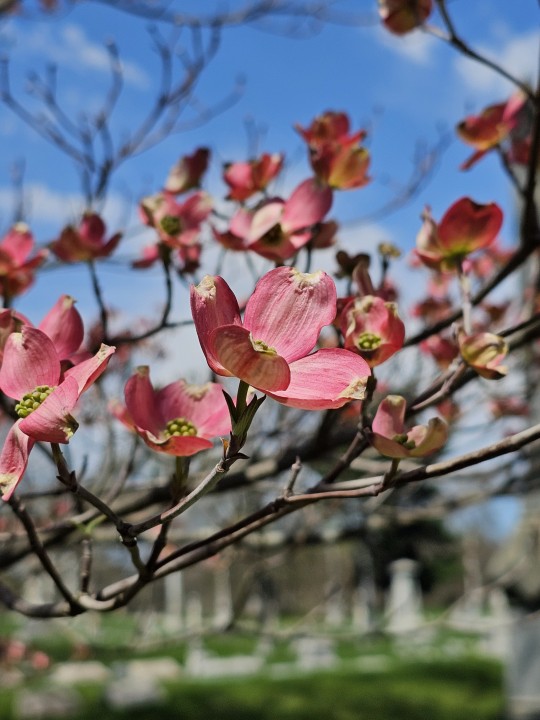
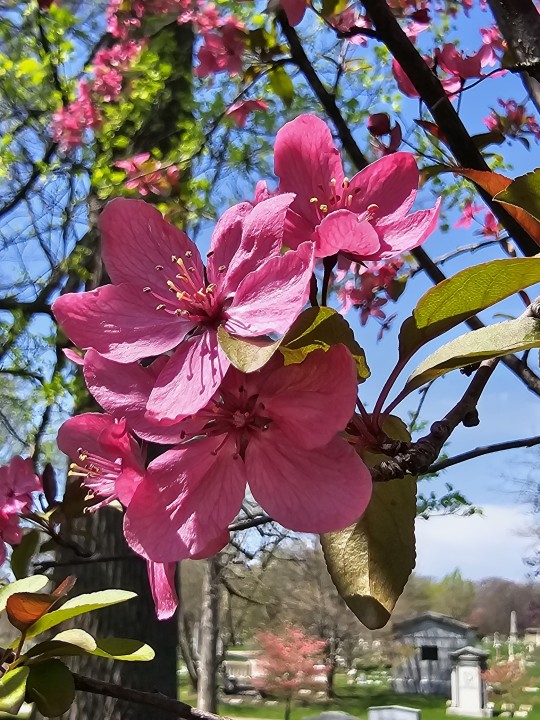
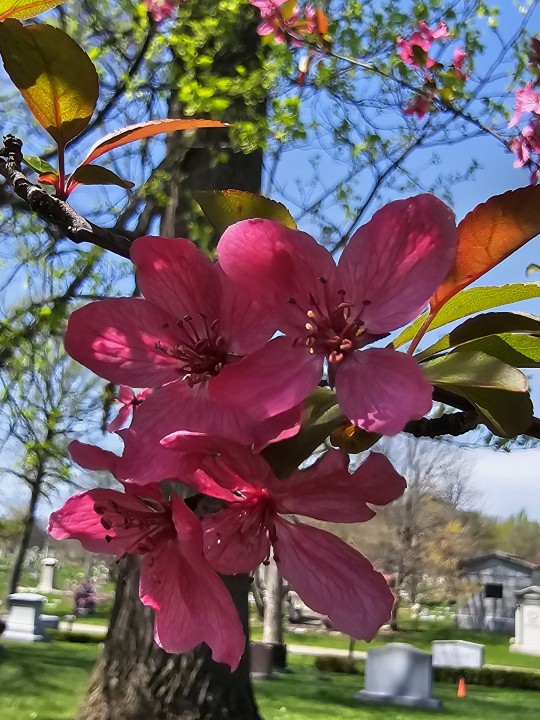
Cemetery Flowers 3
Crown Hill Cemetery - 4/14/2024
10 notes
·
View notes
Text

Crown Hill - welcome one and all by Agent Fifty Eight
Via Flickr:
Picturesque cemetery entrance.
4 notes
·
View notes
Text
a conversation just now with @mrsgeorgeluz has reminded me to share with you these treats obtained from a two-day trip to aldbourne up in marlborough, wiltshire with @liebgottsjumpwings that we went on in march this year, so without further ado, here's our 2023 band of brothers aldbourne excursion report!
we started by taking a train up to oxford from london, drove further out to marlborough from park end station and followed this aerial photograph:

and this illustrated map, courtesy of the royal army service corps (as found from the aldbourne heritage center) and which, if our sources are correct, may have been drawn by pat christenson:

to the site where easy company set up their barracks back in 1943. our navigational abilities have, to our surprise, proven reliable. aldbourne is a very small village so the site wasn't far from the square, but it was a mildly frustrating walk interspersed with rain and beset by slippery gravel slopes BUT hi-ho silver bitches 😌

this is where the enlisted men and ncos lived in huts made of wood and brick and cinder blocks, constructed as part of a temporary encampment. these were described as "wood and quonset-type buildings with a potbelly stove in each and toilets outside" by don malarkey and tbh nobody loved them because the outdoor toilets apparently made everything smell like shit. the site was difficult to find at first and we used the shape of nearby roads and other infrastructure to roughly estimate its position but we found it and discovered that it is presently a football field.
unfortunately the rain picked up almost immediately when we got there and we did not bring adequate footwear, so we could not actually go onto the field and manually identify where each individual hut and building used to stand, as we originally planned to do. so we walked around the perimeter. only a handful of buildings from the encampment remain as most of them were removed by the village council after the war. one of the remaining buildings is the cookhouse. the other is a red cross hut, nicknamed the "nissen hut" by archaeologists and historians, which looked like this:
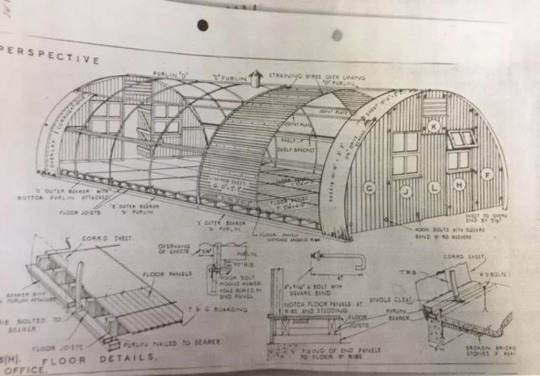
and which we did not have access to. at any rate i'm pretty sure it has been repurposed as a workshop.
we had lunch at the aldbourne post office and café,

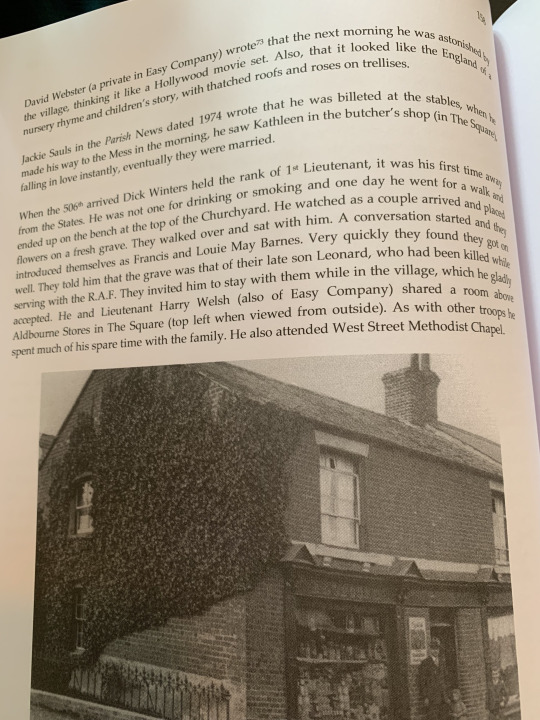
aka downstairs from the room where dick winters and harry welsh were billeted!
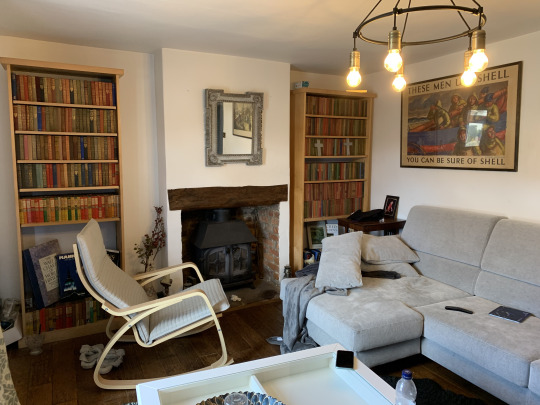

here's dick's upstairs window overlooking part of the village square.
all of this is also on private property and the owners, who are also the proprietors of the café. according to the owners, various members of the band of brothers cast often make trips up here and i believe we missed peter youngblood hills (shifty powers) and nicholas aaron (popeye wynn) by a month or two.
then we decided that it was time for a pint. our first stop was the crown where unfortunately we did not take any photos, but it was the go-to pub for enlisted men. a short walk away is the blue boar aka the officers' club.
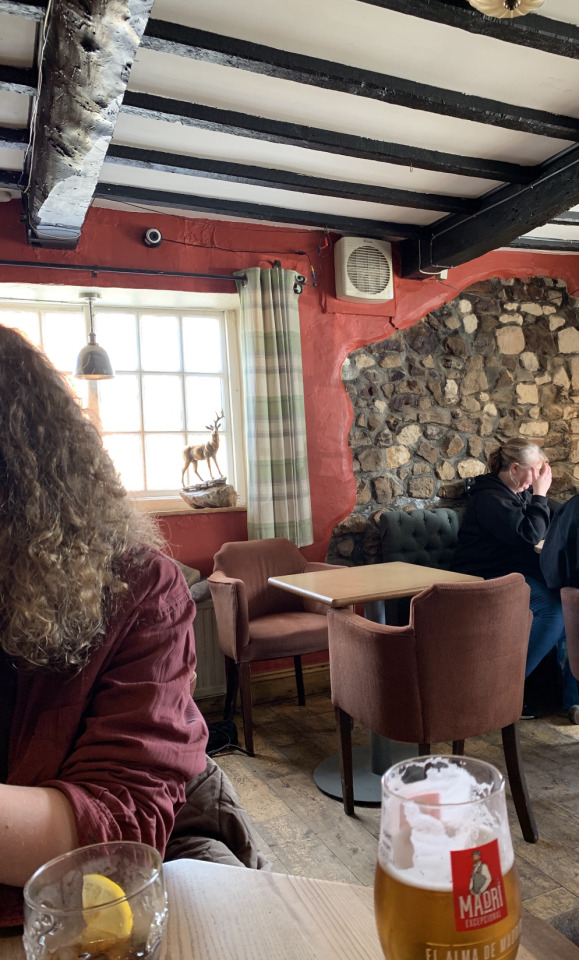
our last stop before we left had us going up to st. michael's church at the other end of the village green to pay our respects to the veterans buried there. we sat at the bench at the hilltop overlooking the village from across the cemetery. apparently this was dick winters's favourite spot to visit if he wanted some peace and quiet, and he wrote about it in his memoirs:
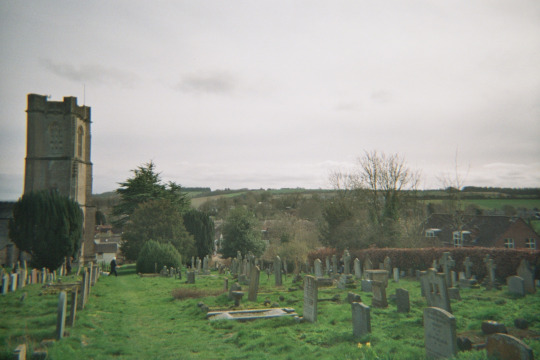
we were also invited to participate in the annual aldbourne excavation project by breaking ground heritage where archaeologists come by the former barracks site (aforementioned present-day football field) and dig for material culture. as the excavation took place in may and clashed with jules's thesis and my final exams, we were sadly unable to attend, but we did leave our contact details for next year's dig.
the aldbourne scenes in the hbo miniseries, by the way, weren't actually filmed in aldbourne. they were filmed in hambleden, buckinghamshire, which we might visit next year on our way back to london.
unlike the easy men, unfortunately we did not go on to invade fortress europa after leaving wiltshire. here we are:

:)
if you're thinking of making a trip to aldbourne yourself and want to know 1.) how to go about it without joining a tour group, 2.) what's the best way to get there or 3.) how to participate in the 2024 archaeological excavation project (where you'll definitely be seeing me), do not hesitate to get in touch with us. we may be a couple of silly geese but we're excited to share anything we know with you.
34 notes
·
View notes